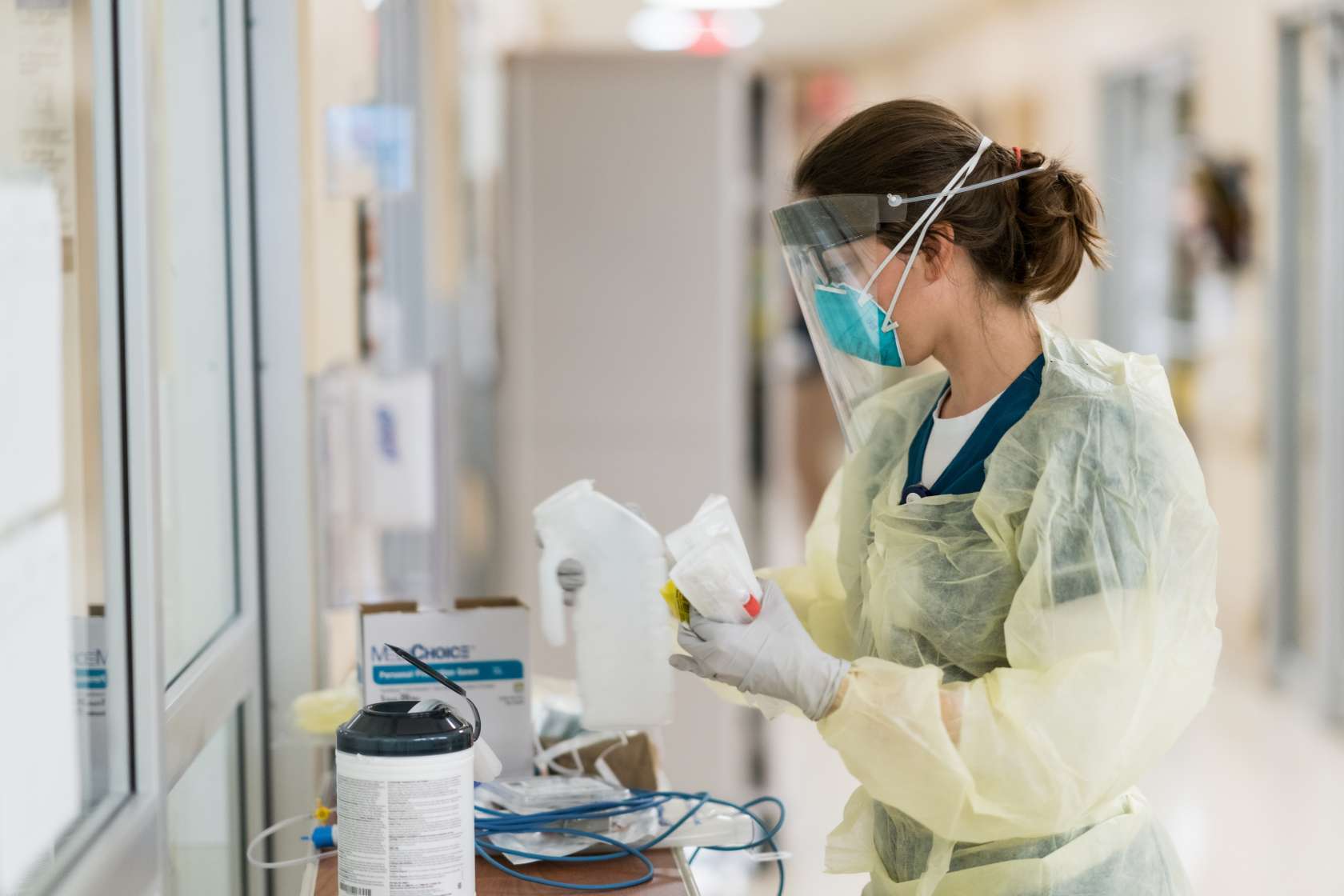COVID-19 Project Highlights
Never before have so many faculty, staff and students at the University of Florida come together to rapidly focus their ingenuity on a single issue, whether it's new ways to educate and reach out to the community, prototypes and devices to help fight COVID-19, or ideas that reach across disciplines. Below are a few of those projects.

COVID-19 Research Updates
Read about the latest COVID-19 research at UF and UF Health.
Project Highlights
Healthcare Workers Exposure Response and Outcomes
HERO Research
This registry is a large, national clinical research community. It invites healthcare workers across America to share clinical and life experiences to understand the perspectives and problems they face on the COVID-19 pandemic front lines.

HIGH CAPACITY COVID-19 TESTING LAB BUILT IN 10 DAYS
Speeding Research: EPI Delivers
Behind the scenes in mid-March, a group of researchers, students and lab technicians across campus came together and built a high throughput testing lab in the Emerging Pathogens Institute in just 10 days.

CTSI Rapid Response Projects
CTSI Rapid Response Pilots
The CTSI made $2 million available for translational research projects that can be rapidly mobilized to help address the COVID-19 pandemic.
ongoing
Translational Science of COVID-19 Seminar Series
A seminar series featuring UF investigators funded by the Rapid-Response Translational Research Projects to Address COVID-19 Pandemic pilot program.

May 14, 2020
Quicker reviews, designated funding is speeding COVID-19 research efforts at UF Health
University of Florida Health researcher Mark Brantly, M.D., and his team are working to evaluate a drug treatment for the novel coronavirus that might block the deadly inflammatory response caused by the disease that curtails the lungs’ ability to function.

June 8, 2020
UF researchers study whether approved drugs can block transmission of virus behind COVID-19
A new study by University of Florida researchers aims to identify a drug or drugs that can potentially be used to prevent and/or treat infection with COVID-19 by interfering with a known behavior of the virus — the way it binds to its cellular receptor, facilitating transmission to the respiratory system.


